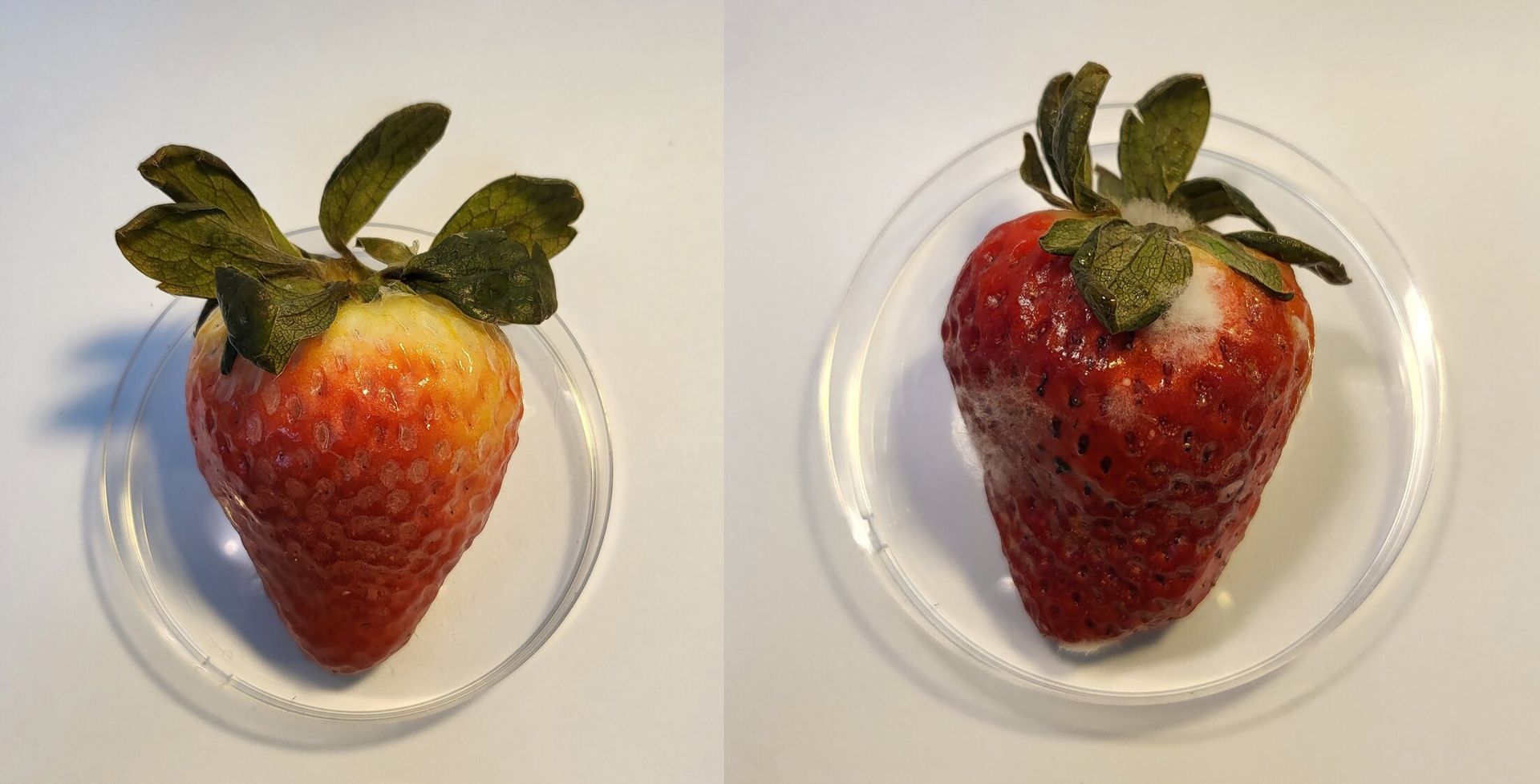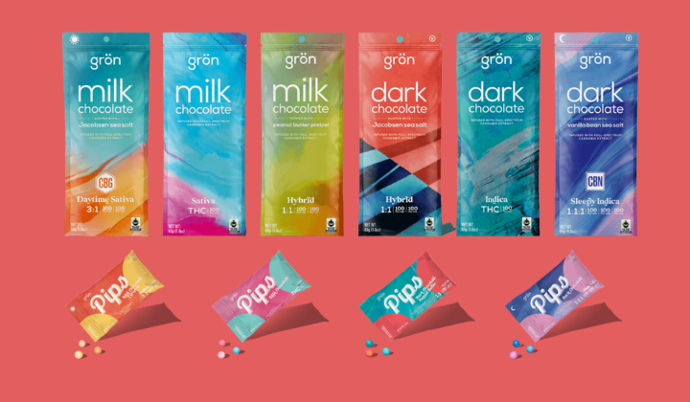CBD on its own is a hot topic. Now that science has unlocked its second secret as a natural preservative for fruit and vegetables, the wave of CBD hype will be unstoppable.
Cannabis companies like yours are poised to gain big time alongside the food industry!It all started with this “berry” good research…
The science behind CBD coating in keeping produce safe and fresh to eat
Depending on the variety, strawberries have a shelf life of 3 to 7 days. And, that is if they are stored and handled properly. What happens if we coat them in CBD?
The eureka moment was inspired by studies indicating CBD’s natural antioxidant and antimicrobial properties. It can help protect produce from damage caused by free radicals and limit the growth of spoilage-causing bacteria and pathogenic fungi. Furthermore, CBD is a safe and non-toxic substance – a fact that dispels doubts and gives consumers a peace of mind.
Leveraging on this information, researchers from ACS Applied Materials & Interfaces used encapsulated CBD nanoparticles in an edible antimicrobial coating to extend the shelf life of produce.

What’s interesting was the fact that the coating with the most CBD-loaded nanoparticles led to the longest shelf life. In general, CBD-coated strawberries exhibited enhanced antioxidant capacity and an improved antimicrobial protection over the storage period, on top of a luscious dark red appearance and sweet flavor.
Results have demonstrated that encapsulated CBD can be effective in making a colorless antimicrobial coating for active food packaging.
So, what does this mean for cannabis growers and manufacturers?
Encapsulated CBD coating – the future of food preservative!
Cannabis companies like yours are poised to gain big time! How? Let’s hear it:
CBD can be the key to unlocking your sales potential. As researchers continue to spearhead development in exploiting CBD as a natural preservative, there is no other way for high-quality raw cannabis products to go but up.
CBD can be infused or coat almost anything – confectioneries, snacks, beverages, skin care products, and dietary supplements!
CBD goes mainstream. In addition to the antioxidant and antimicrobial properties, CBD also protects its coated products more resistant to heat, light, and moisture, giving them that extended shelf-life.
Take this perspective: As more and more food companies start using CBD in their products, chances are hesitant consumers would be drawn to the potential benefits CBD could offer: reducing stress, pain, and inflammation among others. This could give CBD the PR lift it needs to keep the mill of sales going.
Room for more exciting research and development. Further research by the food and cannabis industry could lead to new and innovative ways to incorporate CBD in products. Some companies are already offering fruits and vegetables that are infused with CBD during their growing process. Amazing!
Paving the path to regulatory requirements. The food industry’s adoption of CBD will navigate the regulatory landscape for CBD-infused products. This information will be invaluable as your company develops your own CBD products.
It seems that the future of natural preservatives is CBD. With its ability to keep products fresher for longer and its potential to boost sales, profits, and brand awareness, CBD is poised to transform the way we keep our food and other products safe.
Harnessing fluidized bed and spray drying for CBD encapsulation
For CBD oil to be evenly distributed in water and later be incorporated into foods, it has to be encapsulated first in biodegradable polymers (D,L-lactide-co-glycolide). The most stable nanoparticles, containing 20% by weight of CBD, are then mixed with sodium alginate in water. This solution can now be used as a colorless coating with preservative, antimicrobial properties.
For cannabidiol microencapsulation, spray drying with fluidized bed has the cost and efficiency advantage over any other drying methods. A prime example of this technology in action is the Yamato spray dryer, which allows you to experiment with granulation and encapsulation with a simple glassware swap.
Want to gain that competitive advantage?
Smart partnerships will help you get it right the first time. With TC, we help businesses emerge and grow into leaders using the best technology that supports consumer demand and builds better processes. With our century-long industry experience, our commitment to value-added partnerships make us the perfect match for your next venture.
Subscribe to our newsletter and we’ll deliver the timeliest insider news and happenings on all things cannabis.